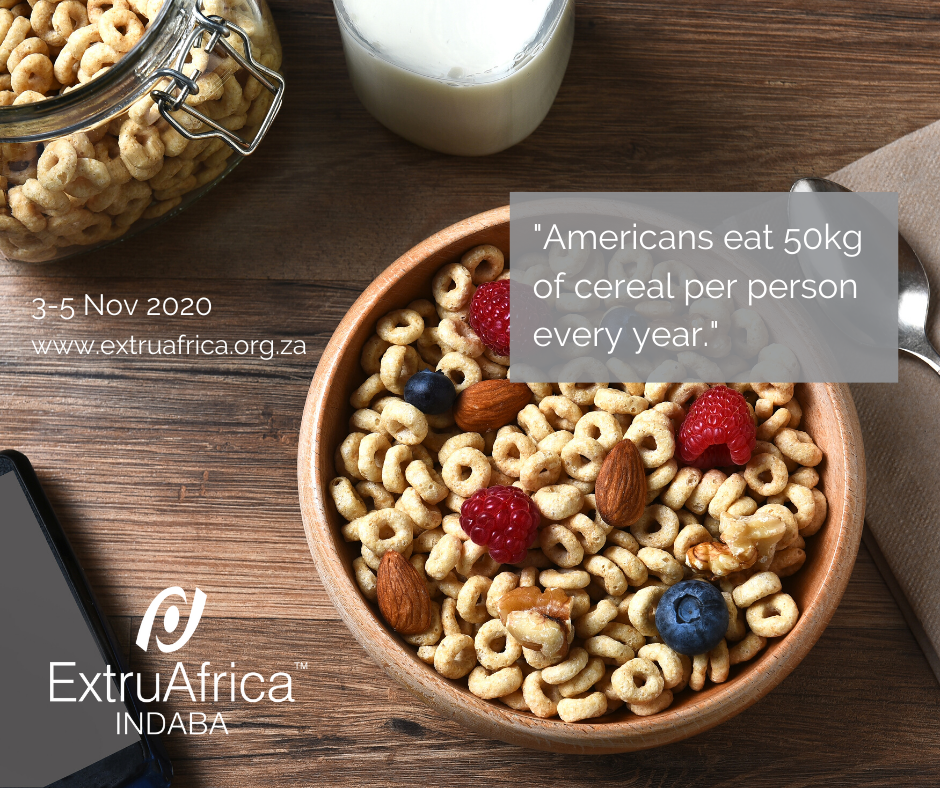
In addition to mass food production, food extruder technology also offers flexibility in terms of the raw material selection and the variety of food products that the system can design. These aspects have caught the attention of commercial food processing industries as they work to create sustainable food products with long shelf life, especially for third-world countries.
Americans eat 50 kg of cereal per person every year. Cereals usually contain a large amount of starch and in its natural form; it’s tasteless, insoluble and not suitable for human consumption. Cereal cooked using extrusion processing allows the gelatinisation of starch to be controlled by temperature, time, presence of water, and shear that affects food quality.
CFAM’s twin-screw extruders have the built-in flexibility to cook almost any kind of cereal. Food producers have almost unlimited options of raw materials, such as corn, oats, barley, wheat, quinoa, and buckwheat to create cereals that are whole-grain and enriched in vitamins, fibres, and other nutrients. This also allows manufacturers to anticipate and respond to customers’ demands.
Directly expanded ready-to-eat cereals have a crispy or crunchy texture. Cereals with high amounts of lipids don’t expand easily because the dough slips in the extruder barrel, which is why they require high temperature and moisture application during extrusion processing. Generally, starches with 5–10% amylase content improve expansion and the texture of snack foods and breakfast cereals.
CFAM’s nutritional ready-to-eat porridge & cereal
Twin-screw extruders, like those manufactured by CFAM Technologies, have extraordinary mixing capabilities, excellent processing flexibility and ensure maximum efficiency during the cooking process. This allowed CFAM to recently produce ready-to-eat porridge (over 1million meals) for families in need in South Africa during the Covid-19 period. The extrusion process gives them the ability to add extra nutrition to the products in order to provide a balanced meal.
The porridge created is dry, yet cooked, and only requires water or milk to be added during preparation. They also managed to add immunity-boosting ingredients like extra vitamin C and zinc, in addition to usual fortification.
CFAM aims to do continuous research and development in twin-screw extrusion technology and high precision manufacturing. As one of the leading food extrusion equipment manufacturers, they supply advanced extruder equipment to clients all over South Africa and globally.
CFAM is also a strategic partner in one of the biggest extrusion conferences in Africa, ExtruAfrica, which will cover technical training seminars with industry experts and practical demonstrations that will take place in the CFAM labs and broadcasted live from the webinar!
